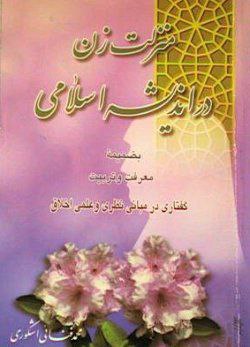The Status of Women in Islamic Thought (منزلت زن در اندیشه اسلامی), Qom, Imam Khomeini Educational and Research Institute, 1999
This book discusses the status and dignity of women in Islam and addresses several common questions on the subject. “Reason and justice” (عقل و عدل)are introduced as two essential criteria for understanding the position of women in Islamic thought.
The book explores topics such as the role of women in Islam, natural and social differences between men and women, and responses to key questions regarding women’s rights and status. Through a historical review, the author critiques the condition of women in both pre-modern and modern societies.
According to the author, Islam revived the identity of women and emphasized rights such as education, ownership, and social participation, thereby paving the way to eliminate discrimination. However, due to incorrect interpretations and harmful traditions, many of these teachings have been overlooked in Muslim societies. On the topic of natural and social differences, the author analyzes the biological and psychological differences between men and women, emphasizing that these do not imply the superiority of one gender over the other. Rather, they reflect complementary roles in the family and society. The book strongly critiques reductionist Western views that either ignore such differences or use them as tools for domination over women. Western culture is criticized for imposing incomplete models, such as excessive individualism and consumerism, upon Islamic societies.
The book emphasizes the need to improve the cultural, legal, and economic conditions of women in Muslim communities and highlights the responsibility of governments and religious institutions in achieving gender justice and combating harmful superstitions.
At the end of the book, an appendix titled “Knowledge and Education” (معرفت و تربیت)is included, discussing the role of understanding and moral upbringing in the ethical development and formation of human character.
